National Overview
Migration was again heavy last night across most of the US east of the Rockies with a heavy Trans-Gulf and Circum-Gulf movement making landfall from Texas to the Florida Panhandle late yesterday afternoon. Birds continued to move north through the central and eastern portions of the country where many birds eventually intersected with heavy precipitation. This was especially evident in the Upper Midwest (see below) and to a lesser but still significant degree along the Mid-Atlantic and Northeast coasts. Where birds intersect with precipitation is always somewhere you should be checking for fallout conditions- so get out your slickers and let’s go birding! (but first read the rest of this post…)

Below are the radar loops from sunset last night through 5:00am (central time) this morning
In an attempt to get the radar posted as quickly as possible, I will be publishing “as I go” each morning. Therefore you may see some incomplete posts throughout the early morning hours (5-6am Central; 6-7am Eastern Time). We’ll test out this method for a few weeks and see how well it works… your feedback, of course, is most welcome!
Mid Atlantic
Delaware & New Jersey
Frames are every 1/2 hour. Click on the thumbnail to view the full-sized animation.
Strong southwesterly flow triggered another night of heavy migration over the Mid-Atlantic. Birds can be seen streaming through the Delmarva and over New Jersey with the bulk of migrants being pushed east over the eastern Delaware Bay and coastal New Jersey. As with yesterday, expect good to excellent birding conditions at Cape May and Sandy Hook with new breeders showing up at Belleplain and migrants throughout the migrant traps along the way. Shorebirds were likely moving within this latest migration event and the combination of heavy precipitation and strong westerly component to the wind means that many may put down in open fields such as flooded or wet airport lawns, farm fields, baseball fields or the like. If it is raining near you, be sure to check out both the open areas as well as the woodlots for wayward migrants.
Upper Midwest
Wisconsin
Frames are every 1/2 hour. Click on the thumbnail to view the full-sized animation.
Heavy migration again along eastern Wisconsin coupled with westerly winds and storms means there is a serious potential for fallout conditions along the lake shore. Birders around Milwaukee and throughout the Door Peninsula should be checking their local patches for wayward migrants this morning. As with the NJ post above, the potential for a shorebird fallout is almost as good as one for landbirds- so check any open fields (especially airports or other ephemeral shorebird habitats) for such groundings first thing this morning (as conditions improve, shorebirds will move out of these grounding areas and back into more typical habitat… so being there early and while conditions are still poor is usually key). Otherwise, expect more birds to have arrived over night especially in the east where the nasty weather held off until many of the birds had already taken to the sky. Looking at the regional composite it appears that Western WI received less new birds today because of the heavy precipitation. With the La Crosse radar still down for upgrades, it’s hard to say whether this is simply a hole in the data, but I would expect less influx into that part of the state this morning.
Iowa & Illinois
Frames are every 1/2 hour. Click on the thumbnail to view the full-sized animation.
Migration was heavy over both Iowa and Illinois with many birds appearing to enter eastern Wisconsin via Chicago. That would explain the heavy returns over Milwaukee early this morning as well. Expect good birding conditions around Chicago especially along the lake shore given the west winds that built in overnight. Davenport IA is interesting because of the heavy precipitation that moved in and eventually knocked many birds down. Birders around Davenport, and especially just to the north, should be on the lookout for fallouts of migrants at local habitat patches. Because of this heavy precipitation, though, it appears that many of these birds probably didn’t make it into western Wisconsin this morning.
Minnesota
Frames are every 1/2 hour. Click on the thumbnail to view the full-sized animation.
Duluth, MN showed one of the first large movements of migrants up through the region. Unlike everywhere else I’ve covered in this post, birds appeared to have been heading more northwest over the region (as in, towards Sax Zim versus going around Lake Superior). I’m not sure what to make of this, really, except that the winds did eventually turn easterly this morning. Either way heavy precip moved in early this morning as well and cut off any appreciable influx of birds from the south. Expect a net loss of birds across the Duluth area this morning.
As always, woodcreeper.com depends on YOU to report your sightings and be our ‘eyes on the ground’, so please come back and give us an idea of how we’re doing predicting birding conditions in your neck of the woods.
ÂFor migration updates covering other regions check-
Badbirdz Reloaded – Angel & Mariel cover Florida and the Southeast
Birds Over Portland – Greg blogs about the Pacific Northwest
Nemesis Bird – Drew and company give you the skinny on Pennsylvania
Tom Auer (aka The Skua) – Tom’s blog covers New England
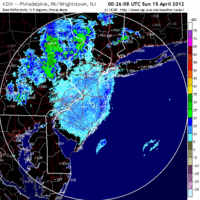
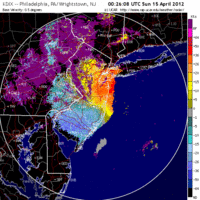
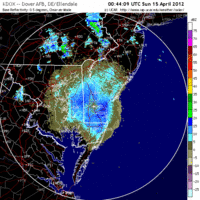
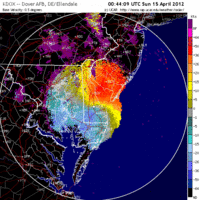
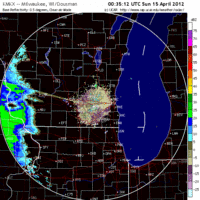
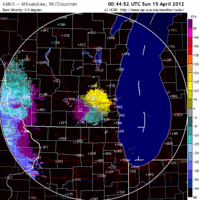
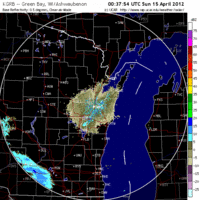
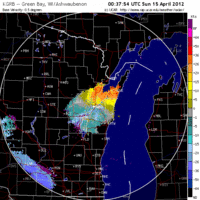
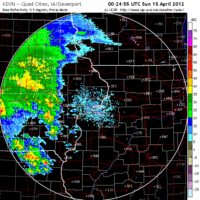
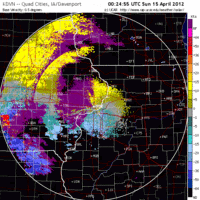
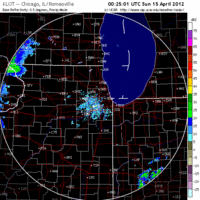
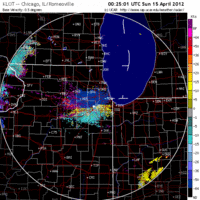
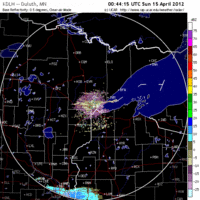
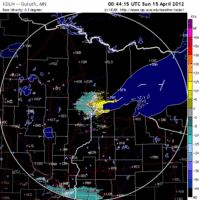
4 responses to “Heavy migration and fallout potential as birds hit storms in the Upper Midwest and along the East Coast”
Despite the good wind and light rain last night, migrant numbers in Prospect Park were low Sunday morning. Palm Warblers, which were in good numbers, seem to have taken the opportunity to move out. Towhees appeared Saturday and Sunday, and YB Sapsuckers were abundant. But though there were reports of a few individuals — Blue-headed Vireo, White-eyed Vireo, Yellow-throated Warbler, Northern Parula — migrants did not appear in numbers.
Thanks for the feedback!
Spot on forecasting! Started at Allaire around 8:30am, it was very quiet. The only bird there we didn’t have on the Hook was a handful of black-and-white warbs.
We arrived at Sandy Hook around 10am. It was obvious there were many more birds around and pushed east. I heard many flight calls last night (Port Monmouth) including what I believe was a clapper rail which awakened the local mockingbirds.
Hook list-Sun Apr 15, 2012 11:22 AM
Protocol:Traveling
Party Size:2
Duration:1 hour(s), 21 minute(s)
Distance:2.0 mile(s)
Observers: Chase Schiefer, Evan Schmitt
Comments:With chase Schiefer
Submitted from BirdLog NA for iOS, version 1.2
Species
26 species (+1 other taxa) total
49
Brant
1
Mallard
1
Great Egret
1
Glossy Ibis
15
Black Vulture
2
Turkey Vulture
1
Osprey
1
Sharp-shinned Hawk
1
hawk sp.
1
Merlin
1
Red-bellied Woodpecker
1
Yellow-bellied Sapsucker
1
House Wren
4
Blue-gray Gnatcatcher
2
Hermit Thrush
10
American Robin
4
Cedar Waxwing
4
Palm Warbler
5
Eastern Towhee
3
Field Sparrow
1
Savannah Sparrow
5
Song Sparrow
20
White-throated Sparrow
6
Dark-eyed Junco
1
Northern Cardinal
2
Red-winged Blackbird
1
House Finch
Thanks for the report, Chase. Tomorrow is looking good again for The Hook, as well as more inland sites such as Garret Mtn. Hope you can get out!